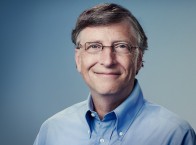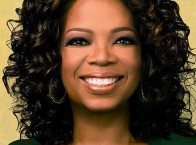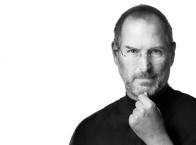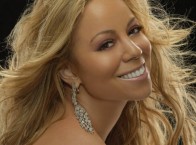Martin Luther King Jr is an American Baptist minister, activist, humanitarian, and the leader in the African-American Civil Rights Movement. Here are 47 facts about him:
- King is the leader in the African-American Civil Right Movements. He is known for his nonviolent civil disobedience based on his beliefs.
- He was born on January 15, 1929, in Atlanta Georgia to Reverend Martin Luther King Sr. and Alberta Williams King.
- On his birth he was named Michael King. A visit to Germany in 1934 to attend ‘Fifth Baptist World Alliance Congress’ in Berlin by his father brought a change in his name. His name was changed to Martin Luther in honor of German reformer.
- He was the second of three children to Kings. He had an older sister Willie Christine King and younger brother Alfred Daniel Williams Kings.
- King liked singing and music and was influenced by his mother, who was an accomplished organist and choir leader. He became a member of junior choir in his church.
- He was very proud of his father who stood up to racial segregation. He was whipped by his father until his early teens to make him achieve something in life.
- Early in his life he experienced racial segregation. He befriended a white boy, who at the age of six moved to different school and his father did not want them to play together.
- King was under depression in his youth mainly due to racial humiliation his family and neighbors had to face in segregated south. Once in 1941, he blamed himself for his grandmother’s death and jumped out of second story window.
- He attended Booker T. Washington High School where he was known for his public speaking skill and was part of school debate team. He skipped both the ninth and twelfth grade of high school.
- Once after winning his oratorical contest travelling by bus, he and his teacher was asked to vacate his seat for white passengers. This incident angered him the most in his life.
- At the age of 15 he joined Morehouse College in Atlanta under special wartime program. He graduated with B.A degree in Sociology.
- King heading to his inner voice enrolled in ‘Crozer Theological Seminary’ in Chester, Pennsylvania. He believed he would be a rational minister with sermon that was ‘a respectful force of ideas, even with social protest.’ He was made the president of student body.
- After his Bachelor of divinity degree in 1951, he joined Boston University and received his doctorate on June 05, 1955. In 1954, he became the pastor of the Dexter Avenue
- On June 18, 1953, he married his friend from Boston University, Coretta Scot t at Heiberger, Alabama. He fathered her four children, Yolanda King, Martin Luther King III, Dexter Scott King and Bernice King.
- In 1995, following the arrest of Rosa Park for violation city’s segregation law, a boycott was planned by Montgomery Improvement Association. King led the bus boycott for which he was arrested and his house was bombed. Boycott which lasted for 385 days, ended racial segregation. He was transformed in to national figure.
- In 1957 King with other civil right activist founded Southern Christian Leadership Conference (SCLC) for the churches to conduct nonviolent protest in the service of civil right reforms.
- On September 20, 1958, he narrowly escaped death when mentally ill black women stabbed on his chest with letter opener. He was operated and hospitalized for weeks.
- In 1958 he published his book ‘Stride Towards Freedom’ and next year in 1959 he published short book on his sermons called ‘The Measures of A Man.’ and ‘The Dimensions of a Complete Life.’
- In February 1959 King and his followers toured India and met the Prime Minister Jawaharlal Nehru. He also had discussion with followers of Mahatma Gandhi and realized the importance of Gandhian concept of peaceful noncompliance (satyagraha).
- King was appointed the honorary president of ‘Gandhi Society for Human Right’ an organization to defend the ministers of SCLC in libel suit over newspaper advertisement.
- On 1962 King and the Gandhi Society produced a documentation calling on the President Robert F. Kennedy to issue an Executive Order for second Emancipation Proclamation to free all form of slavery.
- In 1963 King was under surveillance following directive from Robert F. Kennedy, and his phone was tapped by FBI. The allegation of communists in the SCLC, if made public, would derail the administration‘s civil right initiatives.
- In early 1960 King’s movement of nonviolent protest against system of southern segregation known as Jim Crow Laws lead to extensive media coverage. Majority of the Americans were convinced that the Civil Right Movement was the one of the most important issue in American politics.
- King organized and led marches for black’s right to vote, desegregation, labor rights and other basic rights. His efforts paid dividends with the passages of Civil Rights Act of 1964 and Voting Rights Acts 1965 into the laws of the United States.
- Kings practice of nonviolent protest was criticized by many groups such as Nation of Islam the militant blacks.
- On December 16, 1961 he was arrested when he participated in the ‘The Albany Movement,’ Georgia. He declined bail until the city made concession. After he left the town the agreement was dishonored.
- On July 1962 he was arrested with an option of 45 days jail or a $ 178 fine. King chose to go to jail and refused bail. Police chief Laurie Pritchett discreetly arranged bail through Billy Graham.
- In April 1963 King with SCLC began campaign in Birmingham, Alabama by occupying public space with marches and sit-ins, openly violating laws that they considered unjust. When the intent was to provoke mass arrest failed, strategy of recruiting children and young adults was adopted called ‘Children’s Crusade.’
- For his part in the Birmingham Campaign, he was arrested and jailed. This was his 13th arrest when he started responding to calls on the movements by writing series of letter from his cell on bits of papers. These were compiled into now famous ‘Letter from Birmingham.’
- Kings letter was anthologized, and was reprinted 50 times in 325 editions of 58 readers published between 1964 and 1996.
- In March 1964, King and SCLC joined forces with Robert Hayling, white Northern activist, delegation of rabbis in the St. Augustine and organized march. The movement marched all night through the cities, provoking violence from Klan. King was arrested along others. During course of this movement Civil Right Act of 1964 was passed.
- In December 1964, King and the SCLC joined force with ‘Student Nonviolent Coordinating Committee in Selma, Alabama. The local judge issued an order barring 3 or more people gathering. King defied the order by speaking at ‘Brown Chapel’ on January 02, 1965.
- On February 06, 1964 King delivered an inaugural speech of a lecture series at New School, titled ‘American Race Crisis.’ In his speech he compared the sad state of African-American to that of untouchable in India.
- King represented SCLC was one of the ‘Big-Six’ civil right organizations who organized a March on Washington for jobs and freedom on August 28, 1963. It was largest gathering of protestors in Washington, D.C’s history. King delivered a speech called ‘I Have a Dream,’ which came to regarded as the finest speeches in the history of oratory.
- On October 14, 1964 King was awarded the ‘Nobel Peace Prize’ for his nonviolent resistance to racial prejudice in the U.S. He was the youngest to be awarded.
- Although not part of ‘Selma Voting Right Movement ‘also known as ‘Bloody Sunday,’ he organized third march of the movement on March 25, 1965 and delivered a speech that became known as ‘How Long, Not Long,’ in it he said equal right for African-American could not be far away.
- King opposed the American involvement in Vietnam War but agreed to publicly oppose in his April 4. 1967 speech titled ‘Beyond Vietnam: A Time to Break Silence,’ at New York City River Side Church.
- In 1968 King and the SCLC organized the ‘Poor People’s Campaign’ mobilizing multiracial army of supporters to march on Washington to engage in nonviolent civil disobedience for creation of ‘economic bill of rights’ for poor Americans.
- He wrote his final book ‘Where Do We Go from Here: Chaos or Community?’ He addressed social issue and poverty. He felt Congress had shown hostility towards poor by spending on military with generosity willingly.
- Before his assassination, King had planned to setup shanty town in Washington D.C. After his death, the campaign began on May 02 in Memphis with unprecedented support and donations.
- On March 29, 1968, King went to Memphis in support of black sanitary workers who were on strike since March 12 due to wages disparity between white and black workers.
- On April 3, 1968 on his way to Mason Temple, Memphis, his flight was delayed due to bomb threat. He addressed a rally and delivered his ‘I Have Been to the Mountaintop.’
- On April 04, 1968 at 6:01pm, King was shot as he stood at the second floor of Lorraine Motel. The bullet passed through his cheek smashing his jaw and travelled down his spinal cord settling in his shoulder. He died at St. Joseph’s Hospital after unsuccessful chest surgery.
- At His widow’s request King’s last sermon at ‘Ebenezer Baptist Church’ was played at his funeral. Vice President Hubert Humphrey attended the funeral on behalf of the President. A day of national mourning was declared on April 07.
- On February 04, 1968, in his ‘Drum Major’ sermon, King had requested that at his funeral no mention of his awards and honors be made. It be said that he tried to ‘feed the hungry,’ ‘clothed the naked,’ and ‘love and serve humanity.’
- King was on FBI’s surveillance and at the time of his assassination, Marrell McCollough, an undercover officer was the first person to administer first aid to King. This led to speculation of FBI’s involvement in King’s assassination.
- Widow of King, Coretta Scott King established the King Centre in Atlanta, Georgia dedicated to his nonviolent campaign and tolerance worldwide. His son Dexter King served as the center’s chairman preserving his legacy.

 Share on Facebook
Share on Facebook




















